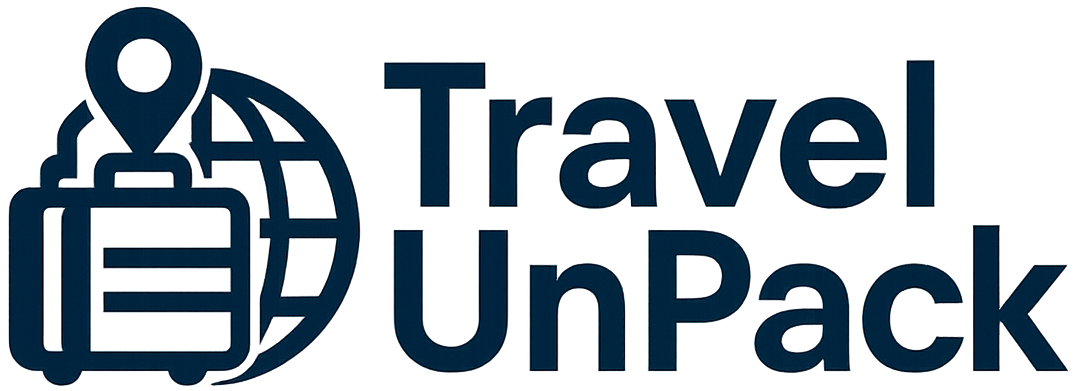The Impact of International Academic Mobility: How Exchanges and Double Degrees Can Boost Your Career
Introduction: Why Consider Academic Mobility?
Imagine having the opportunity to study at one of the best universities in the world, get to know different cultures and even boost your CV. Sound like a distant dream? In fact, international academic mobility is more accessible than ever, and the benefits go far beyond the degree. Exchanges and double degree programs not only enrich your education, but also open doors in the global job market.
Have you ever thought about how a semester abroad can change your worldview? Or how a double degree can set you apart in selection processes? In this article, we'll explore the real impacts of these experiences, from developing intercultural skills to increasing your chances of employability.
In addition, we will bring you concrete data and stories from those who have already lived this journey. According to Institute of International EducationStudents who take part in exchange programs are up to 25% more likely to be hired by multinationals. And it doesn't stop there: international experience also improves your adaptability, creativity and network of contacts.
If you're wondering whether it's worth investing time and resources in an academic experience abroad, read on. We'll show you that the challenges are outweighed by the gains - and that it could be the best decision of your career.
Intercultural Competence Development
Living in another country goes far beyond attending classes in a foreign language. Cultural immersion is one of the greatest advantages of academic mobility. You learn to communicate with people from different backgrounds, understand behavioral nuances and resolve conflicts in diverse environments. These skills are increasingly valued in the job market, especially in companies with global operations.
Think of a common scenario: you're in a working group with students from China, Germany and Brazil. Each one has a different communication style and approach. How do you deal with this? The practical experience of living with this diversity teaches you to be more flexible and collaborative. Companies like Google e LinkedIn are looking for professionals who know how to work in multicultural teams - and an exchange is the best way to develop this.
In addition, exposure to new cultures broadens your critical vision. You begin to question standards, compare educational systems and even rethink your own career. An engineering student who does an exchange in Germany, for example, can be inspired by the teaching model applied there and bring innovative ideas back to their home country.
Finally, don't underestimate the power of international networking. The contacts you make during an exchange can become business partners, mentors or even work colleagues in the future. Maybe your next job will come from a casual conversation on campus?
Career Acceleration and Competitive Edge
In an increasingly competitive market, having an international degree could be the difference your CV is missing. Companies value candidates who demonstrate initiative, adaptability and global experience. A study by EF Education First reveals that 80% of recruiters consider experience abroad to be a decisive factor in hiring.
But how exactly does an exchange or double degree boost your career? Firstly, they prove your ability to adapt to new challenges. Secondly, they show that you are willing to step out of your comfort zone - an essential quality for leadership positions. Having studied at a renowned university abroad also adds prestige to your professional profile.
Let's take a practical example: Maria, a business student, did a semester in France and, on her return, got a job at a multinational. What caught the recruiters' attention? In addition to her fluent French, she brought real cases from European companies that she had studied in class. This gave her a unique repertoire compared to other candidates.
If you're thinking of pursuing an academic career, a double degree can be even more strategic. Many universities require international publications and partnerships with foreign institutions for career progression. Can you imagine having a degree recognized in two countries? This can accelerate your career as a researcher or teacher.
Expansion of Global Networking
One of the greatest assets of an exchange program is the opportunity to build up an international network of contacts. In a connected world, who you know can be as important as what you know. During your experience abroad, you will come into contact with renowned professors, talented colleagues and professionals from a wide range of fields - and these relationships can last a lifetime.
Think of a law student doing a semester at Harvard. In addition to classes, they attend events with judges, lawyers and global experts. These connections can open doors to internships, lectures and even invitations to work in international law firms. Platforms such as LinkedIn make it easier to maintain these contacts, but the first step is to be there, living the experience.
In addition, many universities have mentoring programs for international students. You could be mentored by a technology executive in California or an award-winning researcher in Japan. These mentorships often develop into professional partnerships or nominations for exclusive positions.
And it's not just professional contacts that matter. International friendships can also lead to unexpected opportunities. A roommate in Australia could become your partner in a business in the future. Or a professor in England could put your name forward for a doctoral scholarship. The world is smaller than it seems when you have connections in several places.
Access to Global Labor Markets
Studying abroad not only improves your qualifications, but also increases your chances of working in other countries. Many nations offer work visas for international graduates, especially in areas such as technology, engineering and health. Canada, for example, has the Post-Graduation Work PermitThis allows you to stay in the country for up to three years after graduation.

In addition, global companies often recruit directly from foreign universities. Career fairs, trainee programs and targeted internships are common at institutions like MIT, Oxford and the Sorbonne. If you dream of working at Amazon or Microsoftstudying in the USA or Europe may be the quickest way to go.
Another advantage is mastering a second or third language at a professional level. Many Brazilians return from exchanges with fluency in English, French or German - a basic requirement for positions in multinational companies. And it's not just about speaking: understanding the corporate culture of other countries is a real plus.
Imagine being hired by a company in Germany because, in addition to your education, you already know the local customs and how to negotiate with German clients. You can't learn that kind of experience from books - you just have to live it. Why limit your opportunities to just one country when the world is full of possibilities?
Challenges and How to Overcome Them
Of course, international academic mobility is not without its challenges. From visa bureaucracy to culture shock, many students face obstacles before reaping the rewards of the experience. But with planning and resilience, everything can be overcome.
One of the first challenges is the financial one. Although there are grants such as Science without Borders Program and university partnerships, the costs of housing, food and transportation can be daunting. The tip is to research aid options, part-time jobs (allowed in some countries) and save up before your trip. Many students get paid internships abroad, which help cover expenses.
Another point is the initial adjustment. Loneliness, language difficulties and homesickness are common in the first few months. Participating in student groups, making local friends and keeping in touch with family via video calls help to ease this period. Remember: every change requires adjustment timeAnd that's part of growing up.
Finally, there is the academic challenge. Teaching systems vary greatly between countries, and you may come across different methodologies to those you're used to. Take advantage of university resources, such as tutorials and academic writing workshops, and don't be afraid to ask for help. Professors and colleagues are usually willing to support international students.
How to Choose the Right Program for You
With so many options available, how do you decide between a traditional exchange, a double degree or a summer course? It all depends on your objectives. If you're looking for a quick immersion, a semester abroad may be enough. But if you want a degree recognized in two countries, a double degree is the way to go.
Start by researching your institution's partner universities. Many Brazilian colleges have agreements with schools in Europe, North America and Asia. Sites such as StudyPortals e THE Rankings help compare programs and the reputation of institutions.
Also consider the language of the course. If you're not fluent in English, it might be worth investing in a preparatory course before your trip. Some universities offer programs in Portuguese or with support for foreigners, such as USP in partnership with institutions in Portugal.
Finally, think about the cost-benefit ratio. A short-term exchange may be more affordable, while a double degree requires a greater commitment. What makes the most sense for your career and moment in life? Talking to former students and program coordinators can help you make up your mind.
Practical Tips for Planning Your International Experience
Now that you know the benefits and challenges, it's time to put the plan into action. Here are some practical tips to make your academic mobility a success:
1. Start earlyScholarship and visa selection processes can take months. Organize documents such as academic transcripts, letters of recommendation and proof of income in advance.
2. Study the destinationResearch the climate, cost of living, transportation and local culture. This will avoid unpleasant surprises when you arrive.
3. Talk to those who have already been: Returning exchange students can give valuable advice on housing, subjects and social life.
4. Stay open to new experiences: Take the opportunity to travel, try typical foods and take part in university events. His journey goes beyond the classroom.
Platforms such as Duolingo (for languages) and Numbeo (cost of living comparator) are useful for preparation. And don't forget to follow international student pages on social media - they're full of real, up-to-date tips.
Conclusion: Is it worth investing in international academic mobility?
After exploring all these aspects, it's clear that the answer is yes. Exchanges and double degrees not only enrich your education, but also transform your outlook on the world and your career. They develop skills that no traditional classroom can reproduce, such as adaptability, critical thinking and intercultural communication.
Of course, there are challenges, but the benefits far outweigh the difficulties. Those who have lived through this experience often say that it was a turning point - both personally and professionally. And in today's job market, where differentials are essential, having a passport stamped with knowledge could be just what you need for your next big step.
So how about starting to plan your international journey today? Research programs, talk to your university and get ready for an adventure that goes far beyond your studies. The world is waiting for you.



